A design and development of an intelligent jammer and jamming detection methodologies using machine learning approach
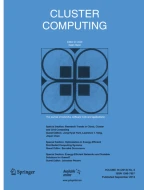
Nowadays, the utilization of mobile phones has increased rapidly. Due to this evolution schools, mosques, prisons, etc., require silence and security. This is achieved by using the mobile phone jammers. An intelligent mobile jammer is designed for allowing only the emergency calls by utilizing the microcontroller. Here, the jammer utilizes the successive approximation for reducing the transmission power. However, it requires few modifications. Therefore in this paper, an improved successive approximation based on divide and conquer algorithm is proposed in order to design the improved intelligent mobile jammer and reduce transmission power. Subsequently, the proposed jammer is analysed based on the different scenarios and frequency bands to illustrate their performance effectiveness. Furthermore, the normal activities are distinguished from jamming by using machine learning-based detection system according to the various parameters. Finally, the proposed algorithm is compared with conventional algorithms to demonstrate its performance efficiency in terms of detection accuracy.
This is a preview of subscription content, log in via an institution to check access.
Access this article
Subscribe and save
Springer+ Basic
€32.70 /Month
- Get 10 units per month
- Download Article/Chapter or eBook
- 1 Unit = 1 Article or 1 Chapter
- Cancel anytime
Buy Now
Price includes VAT (France)
Instant access to the full article PDF.
Rent this article via DeepDyve
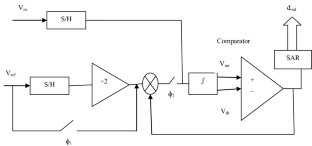
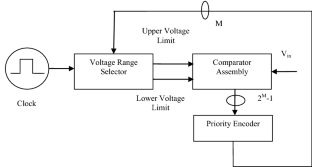
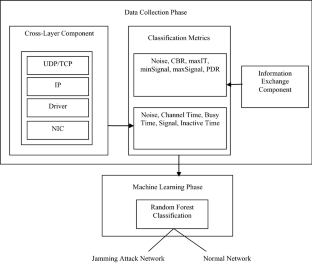
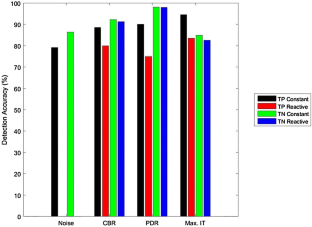
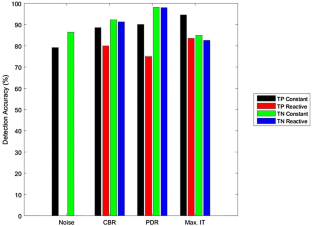
Similar content being viewed by others
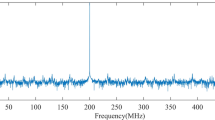
A feature fusion-based communication jamming recognition method
Article 20 April 2023

Machine Learning-Based RF Jamming Classification Techniques in Wireless Ad Hoc Networks
Chapter © 2020

Performance Evaluation of Energy Detection, Matched Filtering and KNN Under Different Noise Models
Chapter © 2021
Explore related subjects
References
- Zaidi, HM.: GSM 900 Mobile Jammer. Jordan University of Science and Technology (JUST), Technical report 2010
- Singh, S., Kaur, R.: Blocking the phone signals with the help of mobile jammer. Int. J. Innov. Res. Comput. Commun. Eng. 4(3), 4225–4231 (2016) Google Scholar
- Mahato, S.K., Vimala, C.: Cellular signals jamming system in 2G and 3G. In: International Conference on Signal Processing, Embedding System and Communication Technologies and Their Applications for Sustainable and Renewable Energy, vol. 3, pp. 242–247 (2014)
- Olumide, O.O., Jimoh, O.O., Olaide, L.A.: Design and development of mobile phone jammer. Am. J. Eng. Res. 5(2), 71–76 (2016) Google Scholar
- Divya, E., Aswin, R.: Design of user specific intelligent cell phone jammer. In: 1st International Conference on Recent Advances in Information Technology (RAIT), pp. 312–316 (2012)
- Kalogerias, D.S., Chatzipanagiotis. N., Zavlanos, M.M.: et al. Mobile jammers for secrecy rate maximization in cooperative networks. In: International Conference on Acoustics, Speech and Signal Processing (ICASSP), pp. 2901–2905 (2013)
- Hussein, S., Mohamed, M.S., Krings, A.: A new hybrid jammer and its impact on DSRC safety application reliability. In: 7th Annual Information Technology, Electronics and Mobile Communication Conference (IEMCON); IEEE, pp. 1–7 (2016)
- Araujo, D.S., Santos, J.C., Dias, M.H.: A dual band steerable cell phones jammer. In MTT-S International Conference on Microwave and Optoelectronics, IMOC/SBMO/IEEE, pp. 611–615 (2007)
- Madara, D.S., Ataro, E., Sitati, S.: Design and testing of a mobile-phone-jammer. Innov. Syst. Des. Eng. 7(7), 7–18 (2016) Google Scholar
- Mishra, N.K.: Development of GSM—900 mobile jammer: an approach to overcome existing limitation of jammer. In: Fifth Conference on Wireless Communication and Sensor Networks (WCSN), IEEE, pp. 1–4 (2009)
- Patel, I., Kulkarni, R., Khan, J.A.: Intelligent FM signal jamming system. In: Third International Conference on Computing Communication&Networking Technologies (ICCCNT), pp. 1–6 (2012)
- Sambhe, V.K., Kale, D.S., Wasule, A., Shikha, N.: Antenna for mobile phone jammer. In Emerging Trends in Engineering and Technology, 2008. ICETET’08. First International Conference on, pp. 856–859 (2008)
- Abdul-Rahman, A.S.H., Mohammad, A.N.R.: Dual band mobile jammer for GSM 900 & GSM 1800. Technical Report, access on Maret: Jordan University of Science and Technology (2013)
- Naresh, P., Babu, P.R., Satyaswathi, K.: Mobile Phone Signal Jammer for GSM, CDMA with pre-scheduled time duration using ARM7. Int. J. Sci. Eng. Technol. Res. 2(9), 1781–1784 (2013) Google Scholar
- Wankhede, H.K., Wankhede, K., Jethwa, M.A., et al.: Blocking the mobile phones signals with the help of jammer. Int. J. Mod. Trends Eng. Res. 2(7), 110–114 (2015) Google Scholar
- Dabcevic, K.: Intelligent jamming and anti-jamming techniques using Cognitive Radios. PhD Programme in Computational Intelligence University of Genoa (2015)
- Grover, K., Lim, A., Yang, Q.: Jamming and anti-jamming techniques in wireless networks: a survey. Int. J. Ad Hoc Ubiquitous Comput. 17(4), 197–215 (2014) ArticleGoogle Scholar
- Thuente, D., Acharya, M.: Intelligent jamming in wireless networks with applications to 802.11 b and other networks. In: Proceedings of the MILCOM, p. 100 (2006)
- Punal, O., Aguiar, A., Gross, J.: In VANETs we trust?: characterizing RF jamming in vehicular networks. In: Proceedings of the Ninth ACM International Workshop on Vehicular Inter-Networking, Systems, and Applications, ACM, pp. 83–92 (2012)
Author information
Authors and Affiliations
- Department of Computer Science and Engineering, K.S.R. College of Engineering, Tiruchengode, Namakkal, Tamilnadu, 637215, India Sivaprakash S
- Department of Computer Science and Engineering, KSR Institute for Engineering and Technology, Tiruchengode, Namakkal, Tamilnadu, 637215, India Venkatesan M
- Sivaprakash S







